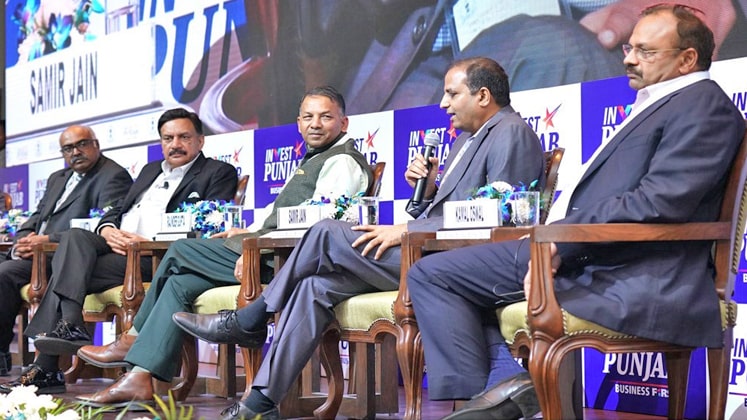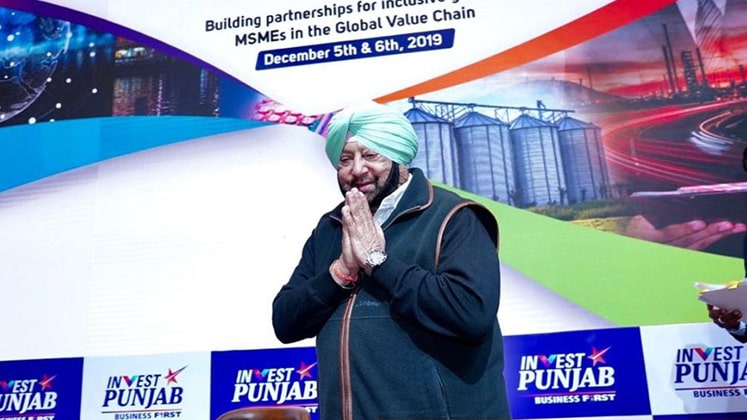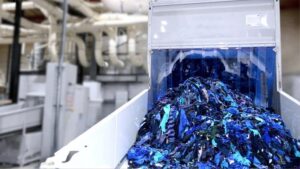
In India, Punjab is the largest producer of cotton and blended yarn and its total textile industry values at Rs. 30,000 crore. Also, 95 per cent of India’s woollen knitwear production happens in Punjab.
Notably, Ludhiana, leading textile and apparel hub of Punjab, was recently ranked No. 1 by the World Bank on the ‘ease of doing business’ parameter.
Team Apparel Resources has been visiting Ludhiana at least once a year for the last one and half decade, meeting manufacturers of leading apparel and textile companies as well as emerging SMEs. And the common question that all of them ask during every visit is, “Has the mindset of Ludhiana’s textile and apparel industry changed as per the required speed?”
Finally, the stalwarts of this established hub seem to have found the appropriate answer to this much sought-after question during the recently organised two-day event: Progressive Punjab Investors Summit (PPIS) 2019 held at Indian Business School, Mohali (Punjab).
During the summit, the textile and apparel manufacturers shared that Punjab should learn from South India’s textile industry. HKL Magu, Chairman, Apparel Export Promotion Council (AEPC) said while addressing a session in the summit, “In Tirupur, apparel industry got together as a cluster and made it happen by dedicating themselves to business growth. We in the North prefer to spend on Mercedes and farmhouse if we earn something.” He was addressing a session ‘Punjab: New Destination for Garmenting & Technical Textiles’ at the summit. “If Punjab’s MSMEs want to prosper, they need to have a knitwear mission. To assist the sector, we plan to set up a centre of excellence in Ludhiana if the Government gives us some space,” he further added.
His words were also echoed by the leading textile player of Ludhiana, Amit Jain, MD, Shingora Textiles Ltd., who said in a lighter vein, “I will request the State Government to help Punjabi people shed their ego and work together.”
A few years ago, Narinder Chugh, MD, Million Exporter, Ludhiana, with a few other local apparel manufacturers, was in the process to explore Bihar for garment manufacturing. In this summit too, he insisted on collective approach. To put it in his own words, “In 2018, Ludhiana was ranked No. 1 by the World Bank on the ‘ease of doing business’ parameter. I endorse the same.”
“We Punjabis carry both the tag of an entrepreneur and an improviser. Days are gone when the Government wanted to subsidise capitalists. The industry can’t ask to subsidise labour for profits,” said Rajinder Gupta, Chairman, Trident Group. Post summit, he announced an expansion project of Rs. 800 crore to increase yarn and terry towels in his Barnala unit.
Kamal Oswal, MD, Nahar Group insisted that India can use US and China trade war opportunity to replace China. He stated, “You have to create a brand if you have to go out with the commodity.”
Change was not only highlighted through the above-mentioned discussion, but it was also reflected in the strategy of the State Government. Unlike other states’ investor summit, no MoUs regarding investments were signed in the summit. The idea was to get actual investment for the state that translates into work on the ground, so the focus was not on signing MoUs.
Punjab is not looking for garmenting, rather technical textiles is being focused upon, though few of the industry experts were of the opinion that technical textiles and allied factors are not the strength of local players. However, the summit highlighted that technical textiles is one of the segments which has noticed good growth in India during recent years.

At the summit, it was revealed that the State Government has decided to have a dedicated MSME marketing cell and an establishment of a Rs. 100 crore start-up fund to boost the MSME sector and start-up culture in Punjab. Promising peace and security to protect investors and industry at any cost, CM of the state Captain Amarinder Singh said to the industry, “Tell me what you need, and I will give it to you.”
Skill development
Textile industry urged for more focus on skill development of local labour to reduce the dependency on migratory workers. Some of the participants in the event believed that skilled labour is still a challenge in India. JD Giri, Director, Shahi Exports shared how Shahi Exports is focusing on training and educating women to find employment in the garment industry.
Logistic parks with huge investments
UAE was the partner country of the summit and few companies from UAE made an interesting announcement. One of them was Sharaf Group which has plans to invest Rs. 250 crore to set up a logistics park near Ludhiana. Already having operations in Punjab, Abu Dhabi-based Lulu Group is in the process to expand further in Punjab. Trident Group is also in talk with Lulu Group to sell products through their retail chains across the Middle East.
Nahar Group also has a plan to set up a logistics park over an area of 45 acres at a cost of Rs. 300 crore in Ludhiana, besides another industrial park.
MSMEs need to focus on value addition
Out of Punjab’s total textile industry worth Rs. 30,000 crore, a major chunk belongs to the MSME sector, and keeping that in mind, it was emphasised that this segment should be supported. “MSMEs need to focus on value addition. Once you are in value-added manufacturing like apparel, the industry can get much high returns with a better strategy and efficiency,” said Kamal Oswal, MD, Nahar Group.
Punjab Government is promoting key e-commerce giants Amazon and Flipkart to enable access to new markets for the Punjab-based MSMEs. Experts also acknowledged at the summit about the IT sector playing a pivotal role in textile and garmenting sector.







